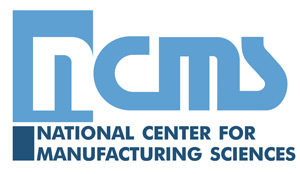Anti-Carbon Coatings for Fuel Nozzles & Systems
NCMS Project #: 142010
Problem: Carbon deposition in fuel systems of turbine engines, known as coking, is a maintenance and sustainment issue for both aircraft and ground-based turbines used for power generation. While sensors in the engine can help to predict the need for maintenance before coking becomes a safety issue, most legacy engines in both commercial and military fleets do not have this analytics capability, thus maintenance intervals are set by human inspections or time intervals. This increased maintenance directly turns into increased cost for both public and private organizations. Reducing coking through a technological solution that addresses the root causes would be the most cost-effective way to improve maintenance and sustainment activities and outcomes for the public good.
Benefit: Utilizing a coating that may safely elongate this equipment will save costs, as well as enhance time on wing, while reducing manhours associated with maintenance activities. This technology would benefit the entire fleet of turbines used in aircraft and power generation within the commercial and defense sectors.
Solution/Approach: Temperature of fuel, which is dictated by the fuel nozzle design, has been a known design issue. The project objective will be to reduce coking deposits that are typically inherent on fuel nozzles. This effort will deposit anti-coking coatings on sample material coupons and engine hardware to demonstrate improved coking resistance. Coated fuel nozzles will be supplied to NAVAIR for a ground-based test on a helicopter engine.
Impact on Warfighter:
- Increase safety
- Reduce maintenance and sustainment costs
- Ensure warfighter readiness
DOD Participation:
- NAVAIR
- ONR
- U.S. Army DEVCOM (observer)
Industry Participation:
- Applied Materials
- NCMS
Benefit Area(s):
- Cost savings
- Maintenance avoidance and reliability
- Safety
- Improved readiness
- Reliability improvement
Focus Area:
- Coatings/corrosion prevention
